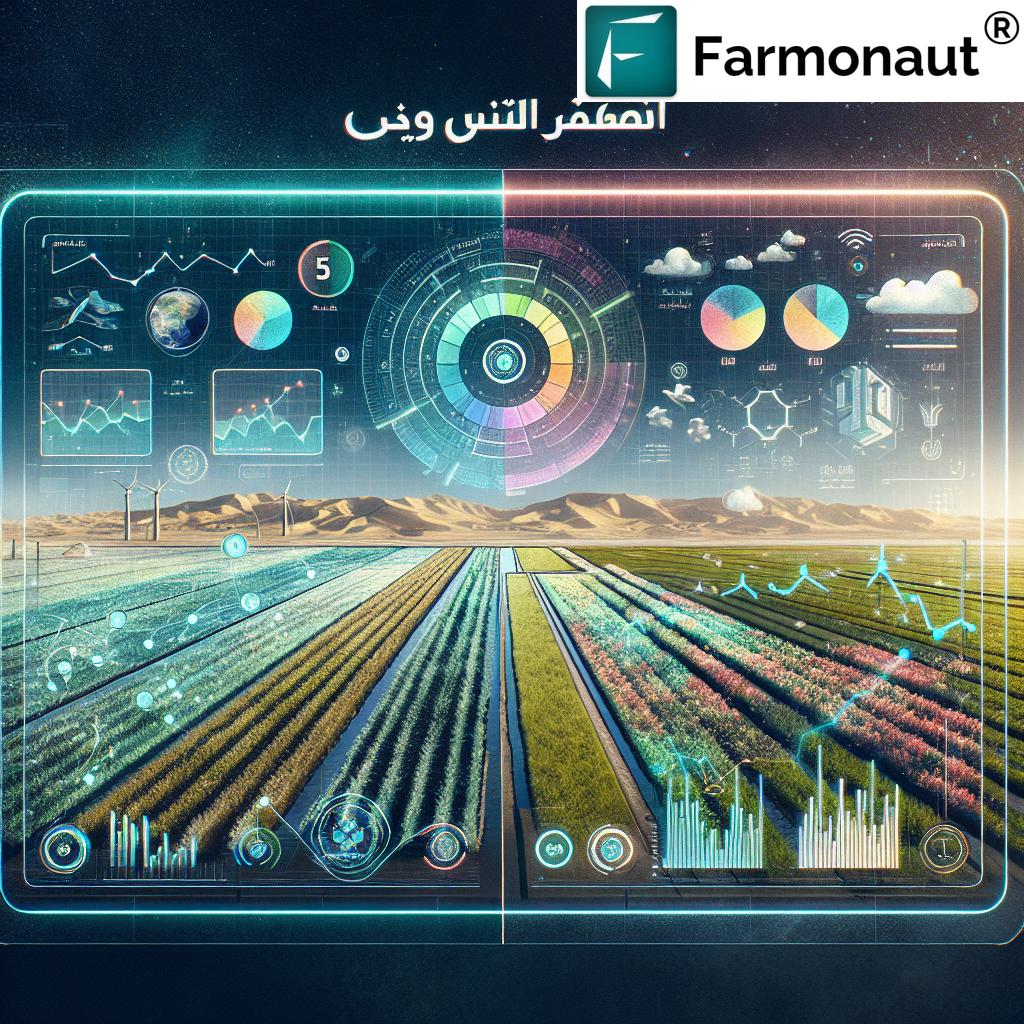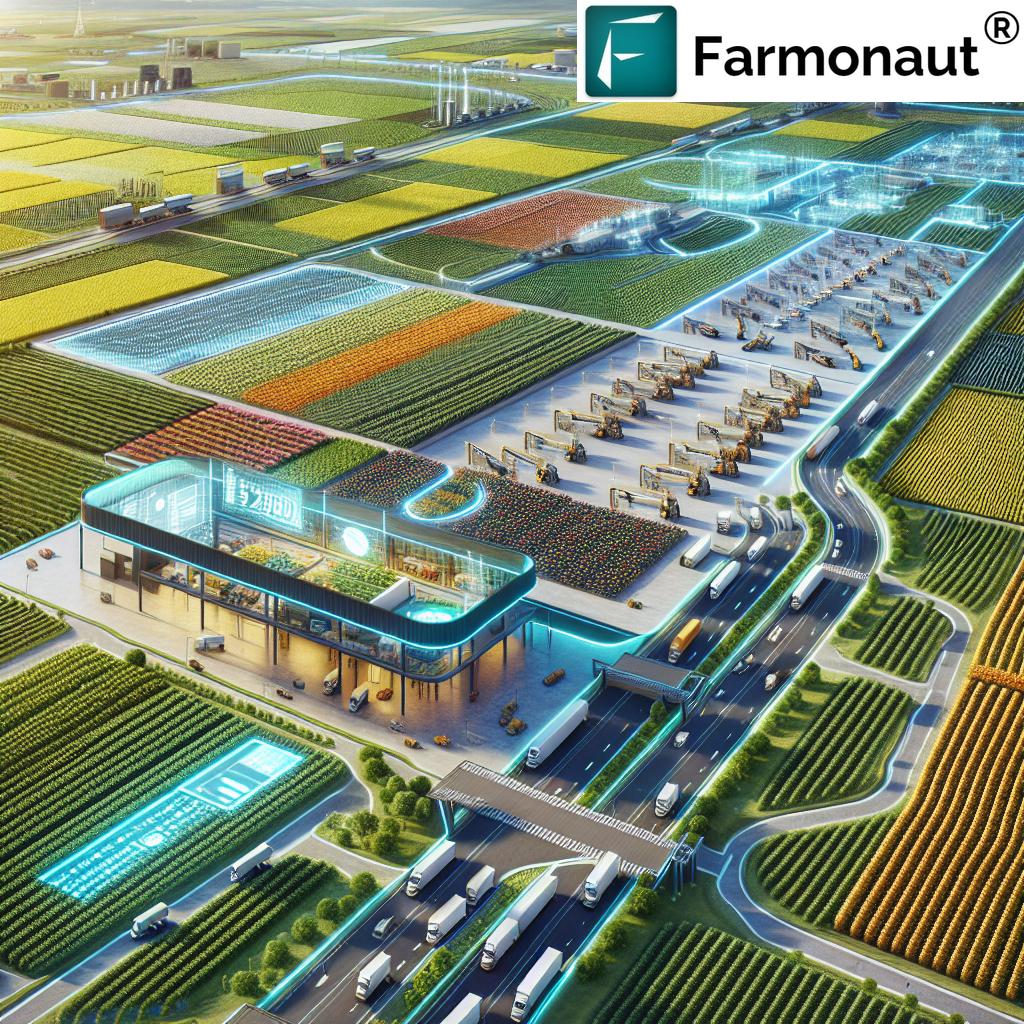Transforming Ghana’s Agribusiness: Strategies for Sustainable Growth and Economic Development

“Ghana’s agricultural sector contributes approximately 20% to the country’s GDP and employs about 44% of the workforce.”
In the heart of West Africa, Ghana stands at a critical juncture in its agricultural journey. As we delve into the transformative strategies needed to revitalize agribusiness in this vibrant nation, we uncover a tapestry of challenges and opportunities that shape the economic landscape. Our exploration takes us through the corridors of innovation, sustainable practices, and economic development, all pivoting on the fulcrum of agriculture.
The Current State of Ghana’s Agricultural Sector
Ghana’s agricultural sector, while a significant contributor to the nation’s economy, faces substantial hurdles that impede its full potential. We’re witnessing a sector that’s underperforming, largely due to its heavy reliance on raw material exports rather than processed agricultural products. This dependency not only limits value addition but also puts continuous strain on the stability of the Ghanaian cedi.
- Overreliance on raw material exports
- Limited processing capabilities
- Pressure on foreign exchange earnings
- Underdeveloped value chains
The absence of large-scale indigenous agribusiness companies further compounds these issues, creating a void in employment opportunities and hampering the sector’s ability to compete on regional and global stages.
Challenges Hindering Growth
To understand the transformative strategies needed, we must first acknowledge the multifaceted challenges facing Ghana’s agribusiness sector:
- Limited Value Addition: The focus on raw material exports rather than processed products significantly reduces potential earnings and economic impact.
- Inadequate Infrastructure: Poor rural road networks and insufficient storage facilities hamper efficient agricultural logistics.
- Brain Drain: Skilled agricultural professionals are leaving for countries with more developed agribusiness sectors, creating a knowledge gap.
- Limited Access to Technology: Many farmers lack access to modern agricultural technologies that could enhance productivity.
- Insufficient Irrigation: Dependence on rain-fed agriculture limits year-round farming capabilities.
These challenges not only affect individual farmers but also have far-reaching implications for Ghana’s economic growth and food security.
Strategies for Transforming Ghana’s Agribusiness
To address these pressing issues and unlock the full potential of Ghana’s agricultural sector, we propose a comprehensive set of strategies:
1. Enhancing Agricultural Value Chains
We must prioritize the development of robust agricultural value chains. This involves:
- Investing in processing facilities to add value to raw agricultural products
- Strengthening linkages between farmers, processors, and markets
- Implementing quality control measures to meet international standards
By focusing on value addition, we can increase the sector’s contribution to GDP and create more employment opportunities along the value chain.
2. Modernizing Rural Infrastructure
Improving rural infrastructure is crucial for efficient agricultural operations. We recommend:
- Upgrading rural road networks to enhance transportation of agricultural products
- Developing comprehensive storage and cold chain facilities
- Expanding electricity access in rural areas to support processing activities
These improvements will reduce post-harvest losses and improve market access for farmers.
3. Expanding Irrigation Infrastructure
To enable year-round farming and reduce dependence on rainfall, we must invest in irrigation. This includes:
- Constructing small to medium-scale irrigation systems
- Promoting water-efficient irrigation technologies
- Developing water harvesting techniques for smallholder farmers
Expanded irrigation will stabilize crop production and increase overall agricultural output.
4. Promoting Technology-Driven Solutions
Embracing agricultural technology is essential for modernizing Ghana’s farming practices. We advocate for:
- Adopting precision agriculture techniques
- Implementing data-driven decision-making tools
- Utilizing satellite-based farm management solutions
In this context, Farmonaut’s advanced satellite-based farm management solutions can play a crucial role in transforming Ghana’s agricultural landscape. Their platform offers real-time crop health monitoring, AI-based advisory systems, and resource management tools that can significantly enhance farm productivity and sustainability.
5. Fostering Large-Scale Indigenous Agribusiness Companies
Encouraging the growth of large-scale indigenous agribusiness companies is vital for sector transformation. This involves:
- Creating investor-friendly agricultural policies
- Establishing agribusiness economic zones
- Providing targeted tax incentives for agricultural processing
These companies can serve as anchors for smaller enterprises, creating a robust ecosystem of agricultural businesses.
6. Strengthening Research and Innovation
To drive agricultural innovation, we must bolster research institutions and knowledge transfer mechanisms. This includes:
- Increasing funding for agricultural research institutions
- Facilitating partnerships with successful regional agribusinesses
- Supporting international standard certification programs
By fostering a culture of innovation, we can develop tailored solutions to Ghana’s unique agricultural challenges.
Comparative Analysis of Agribusiness Transformation Strategies in Ghana
| Strategy | Current Status | Potential Impact | Implementation Challenges |
|---|---|---|---|
| Enhancing Agricultural Value Chains | Underdeveloped | Est. 40% increase in sector GDP contribution | High initial investment costs |
| Modernizing Rural Infrastructure | Poor condition | Est. 25% reduction in post-harvest losses | Funding and maintenance issues |
| Expanding Irrigation | Limited coverage | Est. 50% increase in year-round farming | Water resource management |
| Technology-Driven Solutions | Emerging adoption | Est. 30% increase in crop yields | Farmer education and technology access |
| Large-Scale Indigenous Agribusiness Development | Few major players | Est. creation of 100,000+ jobs annually | Access to capital and market competition |
| Research and Innovation Support | Underfunded | Est. 20% increase in sector productivity | Brain drain and resource allocation |
“Large-scale indigenous agribusiness companies in Ghana have the potential to generate over 100,000 new jobs annually.”
The Role of Technology in Agribusiness Transformation
Technology plays a pivotal role in modernizing Ghana’s agricultural sector. We’re seeing a growing adoption of innovative solutions that can significantly enhance productivity and sustainability:
- Satellite-Based Crop Monitoring: Solutions like Farmonaut’s platform provide real-time insights into crop health, helping farmers make informed decisions.
- AI-Driven Advisory Systems: These systems offer personalized recommendations based on data analysis, improving farm management practices.
- Blockchain for Traceability: Implementing blockchain technology can enhance transparency in agricultural supply chains, building trust among consumers and stakeholders.
By leveraging these technologies, Ghana’s agribusiness sector can leapfrog traditional development stages and compete more effectively in global markets.
Promoting Sustainable Agricultural Practices
As we transform Ghana’s agribusiness sector, sustainability must be at the forefront. We advocate for:
- Promoting organic farming practices
- Implementing soil conservation techniques
- Encouraging agroforestry and crop diversification
These practices not only protect the environment but also enhance long-term productivity and resilience of the agricultural sector.
Addressing the Brain Drain Challenge
To combat the brain drain in Ghana’s agricultural sector, we propose the following strategies:
- Creating attractive career paths in agribusiness
- Establishing mentorship programs for young agricultural professionals
- Offering competitive salaries and benefits in the agricultural sector
By retaining skilled professionals, we can ensure the continuous growth and innovation in Ghana’s agribusiness landscape.
Financial Support and Investment Strategies
Adequate financial support is crucial for the transformation of Ghana’s agribusiness sector. We recommend:
- Establishing an agricultural development fund
- Providing low-interest loans for agribusiness expansion
- Attracting foreign direct investment in the agricultural sector
These financial strategies can provide the necessary capital for modernization and expansion of agribusinesses.
Export Promotion and Market Integration
To boost Ghana’s agricultural exports and regional market integration, we propose:
- Developing export promotion strategies for processed agricultural goods
- Enhancing regional market integration efforts
- Improving compliance with international quality standards
These efforts will help Ghana’s agricultural products gain a stronger foothold in international markets.
The Path Forward: Coordinated Efforts and Monitoring
The successful transformation of Ghana’s agribusiness sector requires coordinated efforts between government entities and private sector participants. We emphasize the importance of:
- Establishing a robust monitoring and evaluation system
- Creating public-private partnerships for agricultural development
- Regularly reviewing and adjusting strategies based on performance metrics
By implementing these measures, we can ensure that the transformation strategies are effective and responsive to changing needs.
Leveraging Technology for Precision Agriculture
In the context of Ghana’s agricultural transformation, precision agriculture technologies play a crucial role. Farmonaut’s advanced satellite-based solutions offer significant benefits:
- Real-time Crop Monitoring: Farmers can access up-to-date information on crop health, allowing for timely interventions.
- Resource Optimization: Precision agriculture tools help in efficient use of water, fertilizers, and pesticides.
- Data-Driven Decision Making: AI-powered insights enable farmers to make informed decisions about planting, harvesting, and crop management.
By integrating these technologies, Ghana’s agricultural sector can achieve higher productivity and sustainability.
For developers interested in integrating Farmonaut’s satellite and weather data into their own systems, check out the API and API Developer Docs.
Conclusion: A Vision for Ghana’s Agricultural Future
As we look to the future, we envision a transformed agricultural landscape in Ghana – one that is technologically advanced, sustainable, and economically vibrant. By implementing these comprehensive strategies, we believe Ghana can overcome its current challenges and emerge as a regional leader in agribusiness.
The potential is clear: indigenous agribusiness companies capable of generating over $500 million in revenue within the coming five to seven years, creating substantial employment opportunities, and fueling sustainable economic growth. This transformation will not only boost Ghana’s economy but also contribute significantly to food security and rural development across the region.
The journey ahead is complex, but with coordinated efforts, innovative technologies, and a commitment to sustainable practices, Ghana’s agricultural sector stands poised for a remarkable transformation. As we move forward, let’s embrace these strategies and work together towards a prosperous and sustainable agricultural future for Ghana.
FAQ Section
Q: What are the main challenges facing Ghana’s agricultural sector?
A: The main challenges include limited value addition, inadequate rural infrastructure, brain drain of skilled professionals, limited access to technology, and insufficient irrigation systems.
Q: How can technology contribute to transforming Ghana’s agribusiness?
A: Technology can play a crucial role through precision agriculture techniques, satellite-based crop monitoring, AI-driven advisory systems, and blockchain for supply chain traceability.
Q: What role do large-scale indigenous agribusiness companies play in sector transformation?
A: These companies can serve as anchors for smaller enterprises, create significant employment opportunities, attract foreign exchange, and support regional market integration.
Q: How can Ghana address the brain drain in the agricultural sector?
A: By creating attractive career paths, establishing mentorship programs, offering competitive salaries, and fostering innovation in the agribusiness sector.
Q: What financial strategies are recommended for supporting agribusiness transformation?
A: Key strategies include establishing an agricultural development fund, providing low-interest loans for agribusiness expansion, and attracting foreign direct investment in the sector.





















